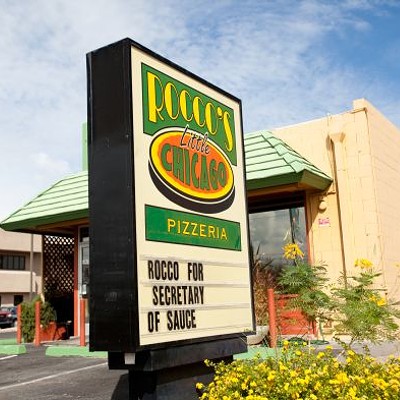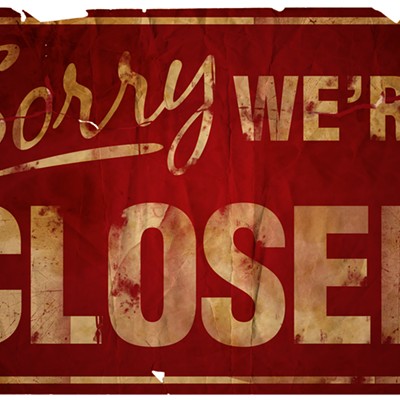Key critics of Brush's operations and emissions from its plant, at 6100 S. Tucson Blvd., hailed the directives by Huckelberry to Ursula Kramer, director of the county's Department of Environmental Quality--even as they received a letter from a Brush lawyer telling them to can their objections or face a lawsuit.
"Let's face it: Not much happens in the county unless Huckelberry is behind it," said Rob Kulakofsky, an official of the local Sierra Club and an ardent Brush critic.
Added Pat Birnie, of the Environmental Justice Action Group: "I'm glad we got their attention."
Huckelberry said in a May 12 memo to Kramer that a new monitoring and evaluation program should be implemented to answer questions about the release of beryllium from Brush's 26-year-old plant.
Brush officials have frequently countered that beryllium, used in the company's production of ceramics for defense and high-tech components, is part of the environment. Huckelberry said he wants proof.
"They do not cite any references or studies regarding the detection of normally occurring mineralization or beryllium minerals in insitu soils and southwestern stratigraphy," said Huckelberry, an engineer by training. "In order to determine the normal and naturally occurring beryllium in southwestern soils, an appropriate citation or authoritative work to fundamental research would be appropriate to establish normal background beryllium mineral concentrations in soils in the vicinity of the Brush Ceramic facility."
Brush's high-heat-tolerant ceramics contain beryllium oxide, which is blamed on illness and death from chronic beryllium disease in a disproportionately high number of workers in Tucson and the company's plant in Ohio. Concern was heightened when beryllium was discovered during December monitoring on the Sunnyside High School campus, about a half-mile northwest of Brush's Tucson plant.
National homebuilder D.R. Horton is preparing 115 acres directly north of the Brush plant for 595 homes in the Tres Pueblos subdivision. Crews are now digging trenches for waterlines.
Brush officials, including local manager John Scheatzle, insist the plant is safe and that it has produced no hazardous emissions. He complained that the wipe test performed at Sunnyside High School was "unreliable."
Huckelberry said monitoring of stack and plant emissions will not be enough.
"It would also be appropriate to establish geographically located air quality monitors that would detect airborne beryllium as well as provide dust-fall sampling proximate to the facility, with at least one or more sampling sites a distance from the facility to again provide some background air and dust-fall sampling facts. I would further suggest that between four and eight permanent sampling sites be established not less than 200 feet and not more than 2,000 feet from the Brush Ceramic plant site," Huckelberry told Kramer.
In an interview, Huckelberry said he wants to know how those readings differ from tests at Arivaca, Marana and midtown Tucson.
In a clear victory for environmentalists who have pushed for testing to be done on Brush's buck, Huckelberry called for "such protocols for an independent, third-party monitor paid for by Brush Ceramic Products who would be acceptable to Brush Ceramic as well as both the Sunnyside School District and those environmental justice interests who have become involved in the issue."
The Arizona Department of Health Services or the federal Environmental Protection Agency must be asked to conduct risk assessment of the effects of beryllium exposure, "specifically targeted at the release of beryllium material by a manufacturing facility to an immediate adjacent residential community."
Brush is fighting back. They have enlisted the support of state Rep. Linda Lopez, a Democrat who also is a member of the Sunnyside School Board. The company has deployed lobbyist Sally Fernandez and has used a mix of public relations, community volunteerism and an aggressive, if rare, radio-advertising campaign, including on the John C. Scott Show.
Richard Elias, a Democrat who is the Board of Supervisors' delegate to the county Board of Health, said the Brush air quality permit situation is a "mess." He commended Scheatzle for being "more forthcoming than his predecessors," but said he and the company will need to do more.
"They may have a shill in Linda Lopez, but they need to get right with (Sunnyside School Board President) Eva Dong and the majority of that school board," Elias said. "And they need to get right with the community and the supervisor from that district. Things have changed. Housing has changed. The City Council rezoned that parcel for housing, part of a plan to reduce industrial properties on the southside. We need to know what Brush is letting the people know, how it is disseminating information. Until then, no permit. And I have no problem saying that."
In a prepared statement, Scheatzle said, "Although our operations pose no health risk to the community or our employees ... consistent with our mission, we will continue to support the best practices for environmental health and safety that protect our employees and community." The plant and surrounding schools and residential areas lie within the southside district of Supervisor Ramon Valadez, the Democrat who lives about a mile north of the Brush plant.
"We need real-time tests, 24/7 testing so we can make sure that if something happens, we are prepared," Valadez said.
Brush's arsenal includes Cynthia T. Kuhn, a lawyer with Rusing & Lopez. Kuhn sought to chill the speech of Kulakofsky and Birnie in a June 2 letter that claims the two made "false and defamatory statements" in an April 14 op-ed piece they authored for the Tucson Citizen.
Kuhn threatens legal action against the two "personally and the organizations you represent."
Scheatzle said he and Brush officials have met to Kulakofsky and Birnie twice "to provide them with accurate information."
"Unfortunately ... the letter became necessary because despite our having provided correct information, Ms. Birnie and Mr. Kulakofsky continue to communicate misinformation to the detriment of our employees and our company." "It's more intimidation than muscle," Birnie said. "We're glad we touched a nerve."
Kulakofsky said the piece was meant to be opinion. "That's what absurd."












